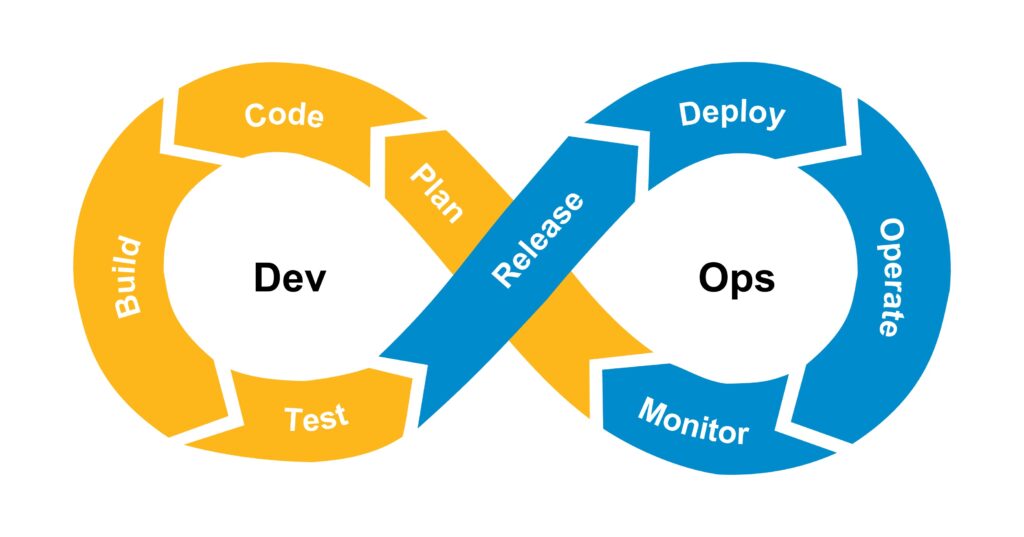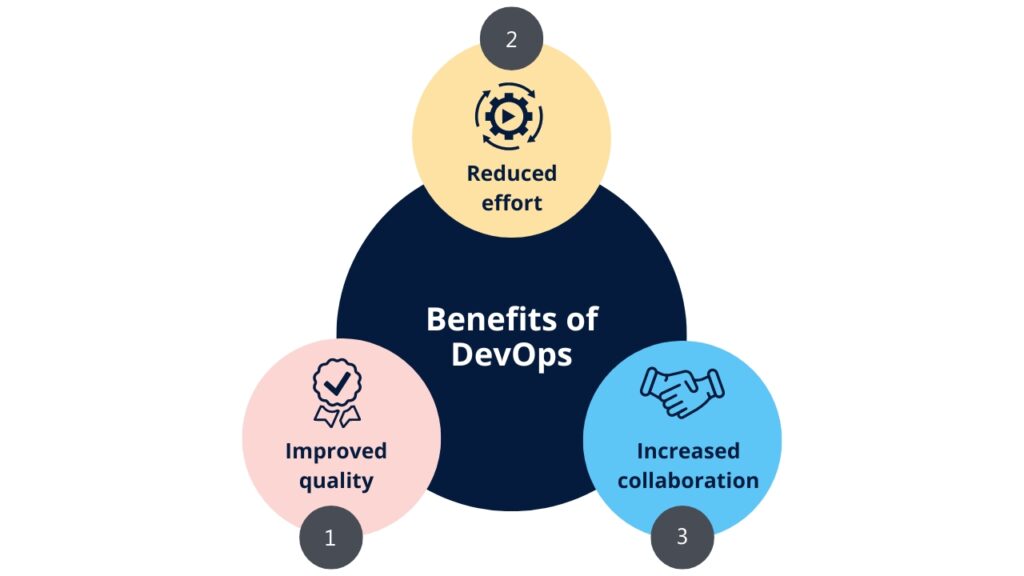Technology projects require maintenance throughout the entire lifecycle, from development to deployment and monitoring. Maintaining a project from version to version can become a manual and strenuous process. Developers must take special considerations at each stage to ensure smooth rollouts. Failure to do so can result in extended-release planning cycles ensuring the software is ready for use by end users.
Development and IT Operations teams may end up spending unnecessary cycles supporting and fixing buggy software. And even worse, failed software releases can impact a company’s financial performance through operations inefficiencies, lost sales, and customer attrition. Failure to maintain working software can impact SLAs, regulatory compliance for some industries, resulting in fines or legal action.
Successful organizations have adapted and created a set of best practices for governing projects, called DevOps.

What is DevOps?
DevOps aims to create a common culture that brings together the people, processes, and technology to deliver value (i.e., working software) to end-users.
It has also come up with procedures for automating many manual maintenance steps to reduce the time it takes to develop, test, and deploy software. Many companies are rushing to implement DevOps to avoid the high costs associated with manually maintaining projects.
Benefits of DevOps on Google Cloud
If you’re asking this question, keep reading. Outlined below are three key benefits of implementing DevOps in your organization.

1. Improved quality
- Standardized tools and processes (i.e., Google Cloud DevOps and Agile Project Management) help keep quality consistent across projects and releases
- Increased DevOps flow on Google Cloud helps improve software quality, delivery, and operations which leads to maintained security and faster deployment from the start
- Quality control implemented through source control branching, code reviews, environment management, release management, etc.
- Reduced fire drills and break-fix measures because of following DevOps best practices
2. Reduced effort
- Fewer manual processes and interventions through improved automation
- Improved software stability leads to faster deployment with minimum manual intervention
- Lower effort to support/maintain because solutions have gone through the appropriate governance and management processes
- Leverage templates for common infrastructure builds/configurations to accelerate new projects going forward
3. Increased collaboration
- Agile project management structure encourages frequent collaboration among team
- Google Cloud provides robust CI/CD capabilities, allowing teams to automate the entire software delivery pipeline. By integrating development, testing, and deployment processes, DevOps teams can collaborate more effectively and achieve faster and more reliable software releases
- Improved communication channels enable the team to identify, track, and manage risks as they arise
- Clear direction and prioritization through collaboration between stakeholders, developers, and end-users
Hopefully, this helps you better understand some of the benefits that implementing DevOps using Google Cloud can bring to your business.
Implementing DevOps is a journey and is not as easy as installing a package, flipping a switch, or buying new technology. Fractal specializes in helping our customers through the process of implementing DevOps, no matter what their current maturity level is. Fractal can provide strategic planning, technology assessments, proof of concepts, as well as technical resources to get you started on your DevOps journey.
Interested in learning more about how Fractal can help you implement DevOps? Please contact us for additional information from our experts.


